Crisis Leadership Blog
Insights and perspectives on being the lighthouse during a crisis.
Give comms a seat at the table
COVID changed so many of our lives in dramatic and also small ways. For me, one was watching TV. I’ve never been a huge TV person so I’ve been fortunate to have great programs to watch as I focused on sticking close to home. The other night I started to watch a show...

Breaking the Crisis Wheel
Like my Kith colleagues, I cut my proverbial teeth in politics. Not as a candidate, but as a campaign staffer and, later, a political consultant. Campaigns are great places to train for reputation management and crisis communications because everything is a crisis....

Politics is coming for you
Have you ever stood at the grocery store trying to decide which pasta to buy and thought about the CEO of one pasta company making a political statement? You remember you didn’t appreciate what she said, but you really prefer how that pasta cooks. Or maybe you agreed...

You Aren’t Crying Wolf
Have you ever wondered why some people are always worrying about the next step down the road and others just wait for the problem to happen before dealing with a big mess? This was the source of a discussion I recently had with a friend who, like me, honed his skills...

Trust and Crisis Confidence
I bet you remember doing fire drills as a kid in school. Your teachers were trying mightily to get 25 fourth graders (if you are Canadian, grade fours) to follow the predetermined route, in a “calm and orderly fashion.” You would then proceed to your designated spot...
By definition, Kith means a cadre of peers who shape opinions and attitudes while instilling sophisticated habits for action. As a way to live this value, we like to share resources that are building blocks to good crisis management and can help you start the path of protecting your reputation.
More Recent Insights
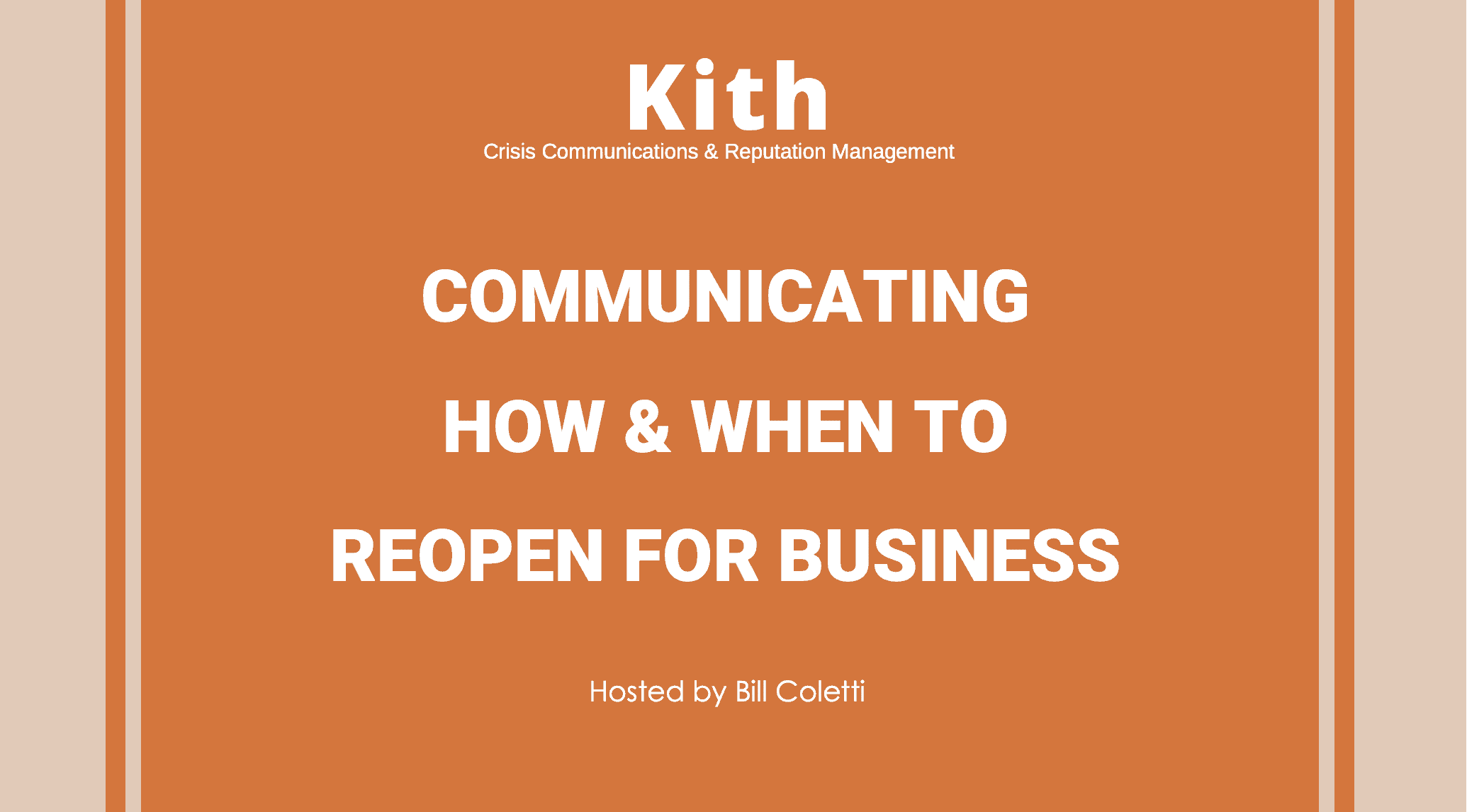
Communicating How & When to Re-Open for Business
On the second webinar in Kith COVID-19 Communication's Series, Bill Coletti helps leaders and their advisors address the confusion around how and when businesses should come back. More specifically, he discusses the financial, social and moral considerations that come with those decisions - especially in light of mixed scientific, political and...

Turning Inwards: Tips for External Communicators Managing Internal Communications
Critical Takeaways The changes forced on businesses by COVID-19 are placing greater emphasis on internal communications. This is requiring external communicators to turn their attention inwards but this change requires a shift in perspective. We’ve outlined five considerations that external communicators need to have in mind when making this shift to...
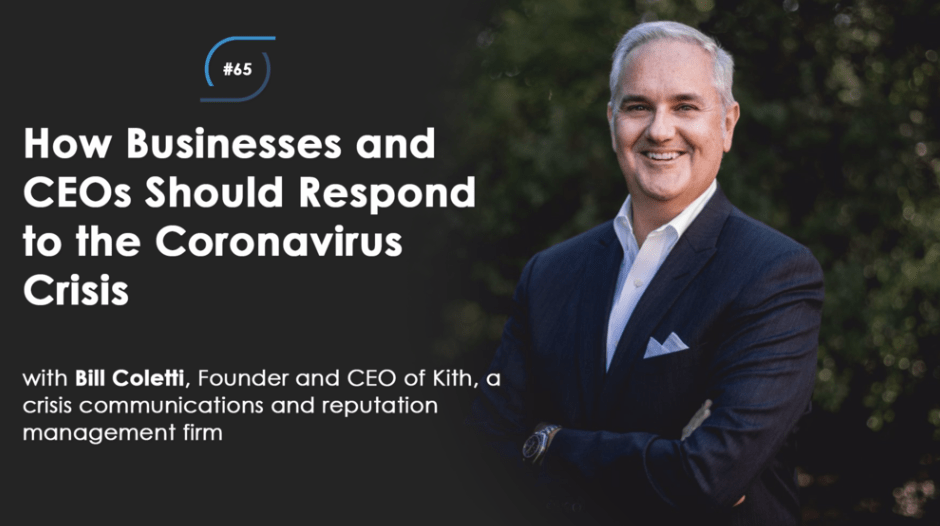
Manage to Win: How Businesses and CEOs Should Respond to the COVID-19 Crisis, with Bill Coletti
In this special episode we speak with Bill Coletti about coronavirus, what businesses can and should do to address the crisis, how CEOs and other leaders should react, and what you can do during the following weeks and months to make sure your company is ready to return to normal operations when the crisis is over. LISTEN HERE
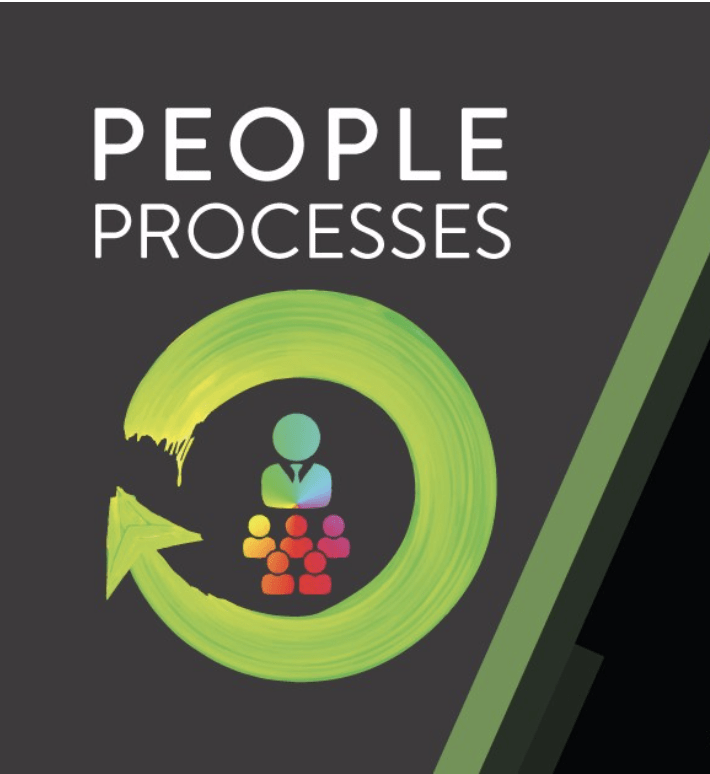
People Processes: Bill Coletti – Kith
On the People Processes Podcast, Rhamy Alejeal interviewed Bill Kith, a crisis management expert and they covered in depth communication strategies to help you navigate the COVID Crises internally. LISTEN HERE

Integrate & Ignite Podcast: Crisis Communications and Reputation Management with Reputation Management
Listen And Learn: Why he recommends a hands-on approach. how successful reputation management hinges on recognizing and responding within those critical moments in time. The importance of involving executive leadership. The difference between reputation management and crisis management/crisis communications. Setting expectations with the Four As. LISTEN...
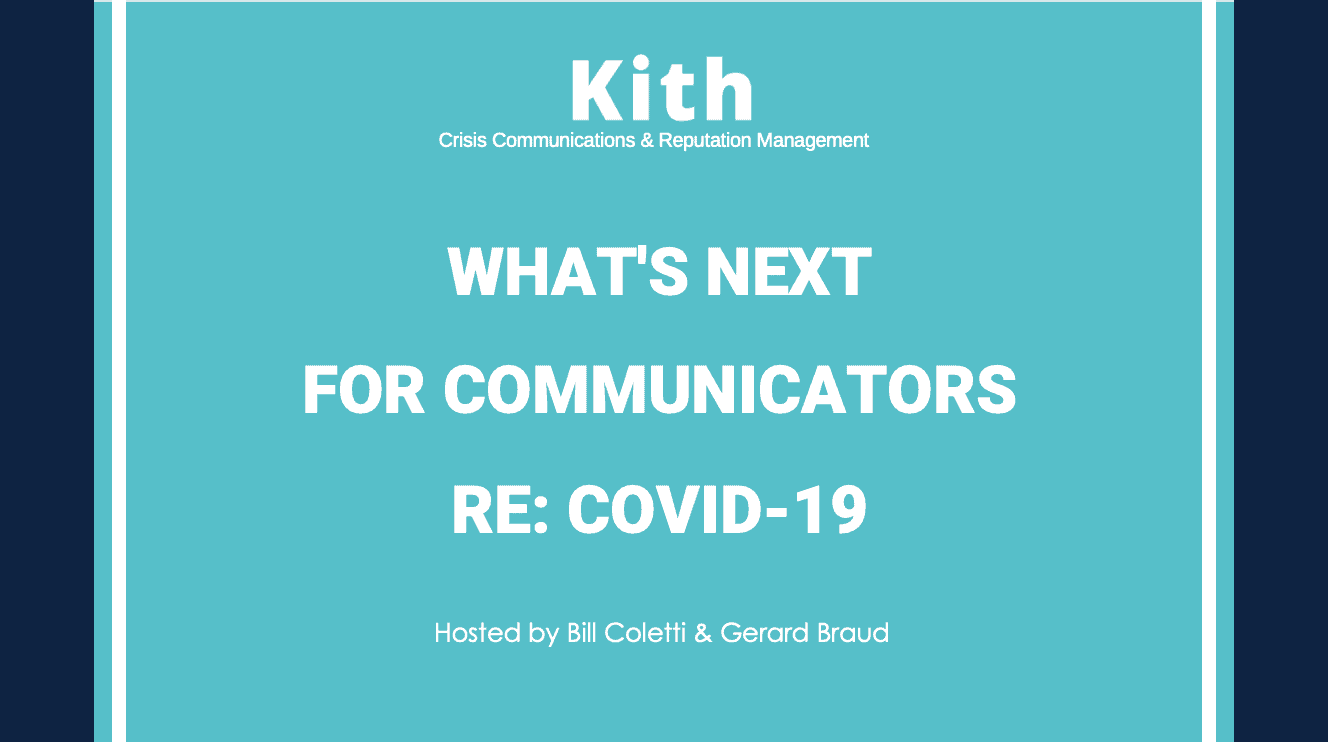
What’s Next for Communicators re: COVID-19
On the first webinar in Kith's COVID-19 Communications Series, Bill Coletti and guest presenter Gerard Braud share their insights and top recommendations on "what's next" and what to do in this very uncertain phase between shutting down and re-opening for business. Specifically, they discuss: Best practices for writing a good response statement What to...
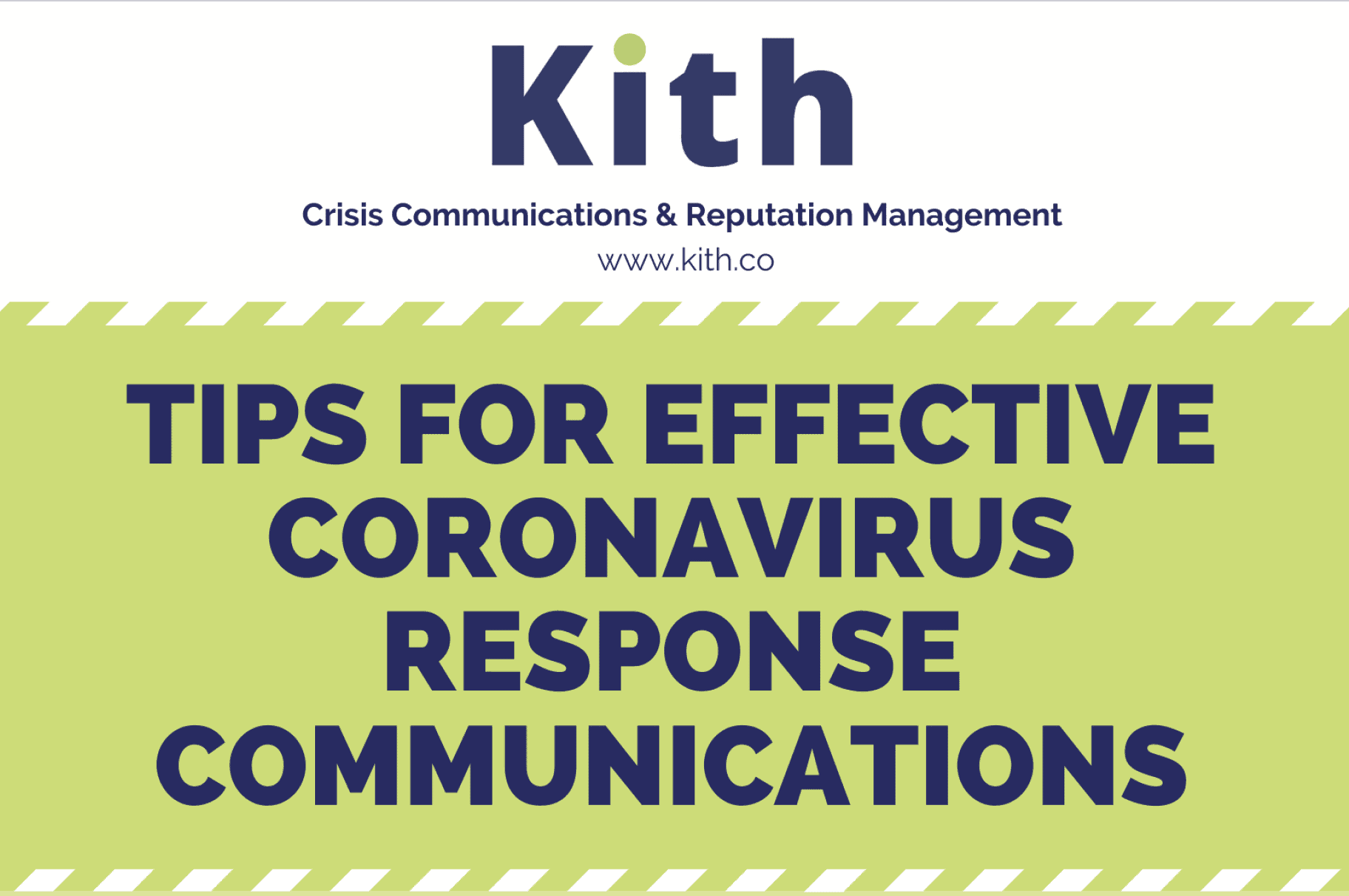
Responding to the Coronavirus: Kith’s top six tips for effective response
We’ve been tracking the spread of the Coronavirus and the cases of COVID-19 around the world and here in the US as we imagine you have. There’s no doubt in our minds of the seriousness of this challenge to individuals, communities, organizations, and countries. We have spent a good bit of time this week and last on the phone with clients as they work...
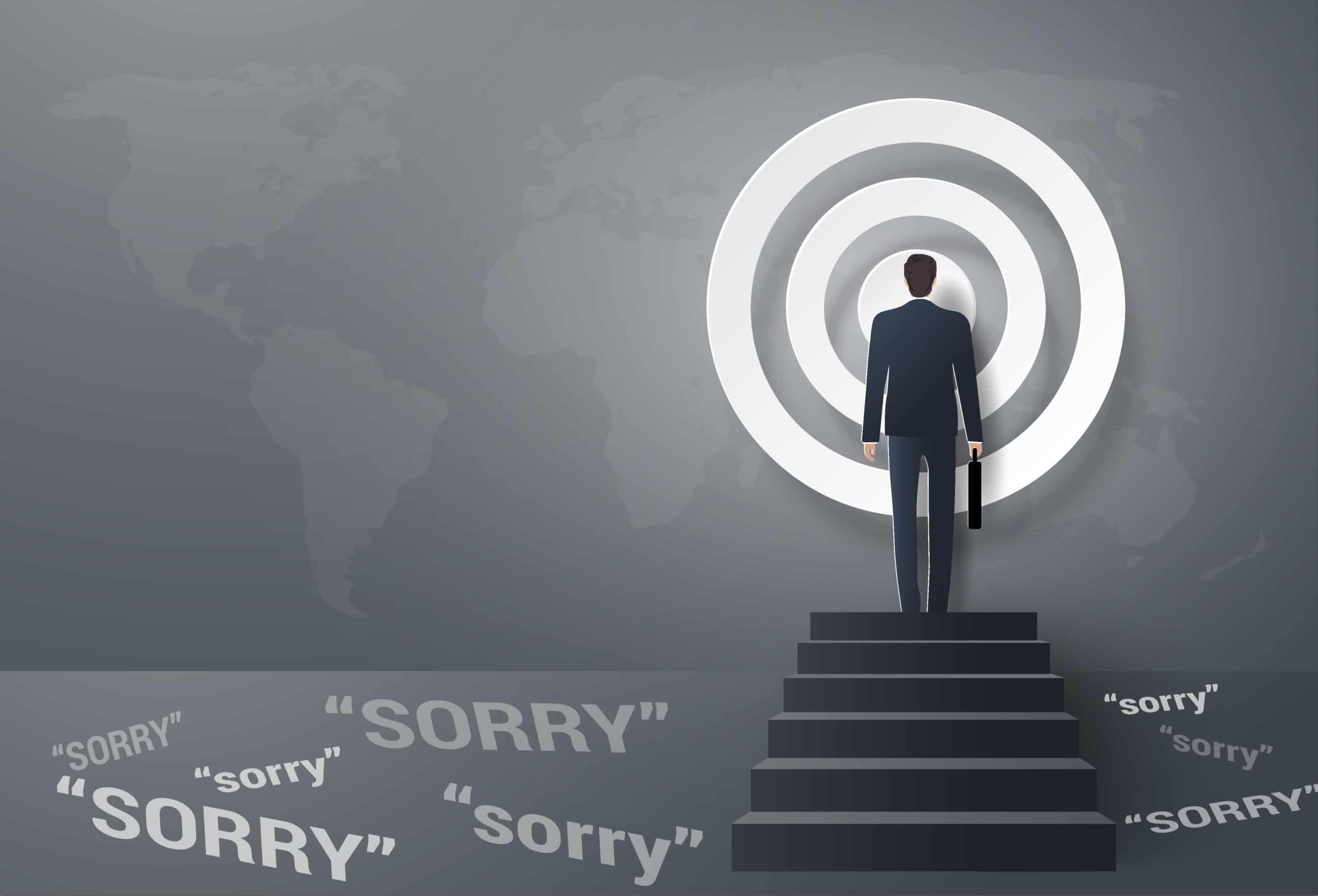
Beyond Deepwater Horizon: How BP has stopped saying sorry and is moving forward
Critical Takeaways BP made a major announcement in February 2020 to become net carbon-neutral by 2050. This announcement signified the end of their somewhat unsuccessful efforts to rebuild their reputation after the Deepwater Horizon disaster of 2010. There is a time where every firm hit by a crisis will have to stop saying sorry but knowing when to do...

Geeks Geezers and Googlization Show: Covid-19: An Opportunity to Make-or-Break Your Reputation
There’s a lot of things your company can’t control and the coronavirus is just one of them. But how you respond should be at the tip of your tongue. According to our guest, crisis communication expert Bill Coletti, “Plan now like your company’s reputation depends on it because it does.” According to Coletti (via way of Seth Godin), your reputation is no...

The Company You Keep: The Reverse Halo Effect and What You Can Do About It
Critical takeaways Companies often accept litigation based on the behavior of others but are unaware that the behavior and actions of their associates can also affect their reputation. This reverse halo effect means that your clients, suppliers, staff, and associates can all have a negative effect on your reputation, even if the link is tenuous. Include...
The Kith Method
Good crisis management comes from a plan. Great crisis management comes from capability – and starts before you even smell smoke. That’s why we developed the Kith Method. We can help build and maintain a flexible capability that works for you.
Your reputation is an investment; time-consuming and costly to build and expensive to repair. Protect it.
